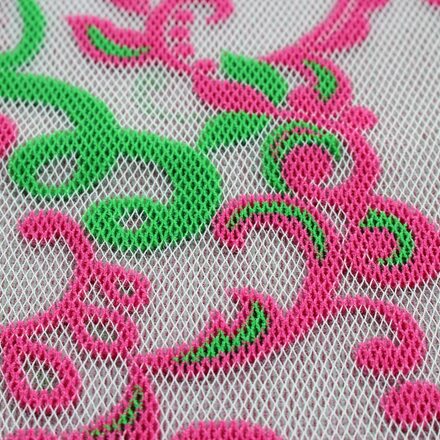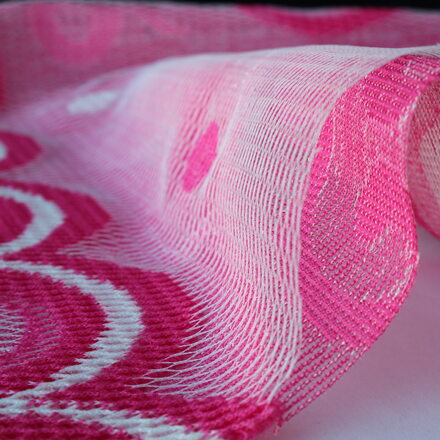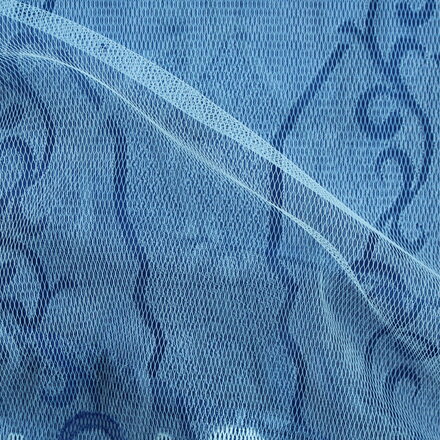Spacer fabric lace mix on the RDPJ 6/2 EL 2C adds oomph to the fashion sector
Two styles, one look
By combining different worlds, completely new paths can be forged, as the warp knitted textiles on this page show. The spacey fashion items from the Techno Lace series by NIPPON MAYER were created by combining spacer fabrics with lace and not only offer an extravagant look but also a unique performance. Chic, technical spacer fabrics have long been well known, particularly in the footwear sector. Finer, softer versions have also opened up fundamentally new design possibilities in the clothing sector thanks to new developments in the recent past, especially through the use of jacquard technology.
The new Techno Lace fabrics were manufactured using an RDPJ 6/2 EL 2C with an E 24 gauge – the jacquard bars of the double needle bar raschel machine produced different lace-style patterns on the top and bottom of the 3D textile, which complement each other to great effect. Sometimes, the design of the underside shimmers through on the surface, while other times it is taken up by the design of the top side and clearly contrasts with the fabric base here – depending on the play of transparency and density created by thin yarns in the mesh areas. When designing motifs, jacquard technology makes all the usual lace looks possible – from floral elements to embellishments and paisleys. Decorative borders as fabric finishes, watermark-style designs and multi- colour combinations can also be created, with the colour effects standing out thanks to a clear appearance. The Techno Lace series on this page has been produced with a small gap between the cover surfaces and with selected yarns. Polyamide 40 den, green-dyed polyester 75 den and pink polyester 75 den were used, while polyester monofilament 30 den was used in the pile-thread zone. The material and structure used resulted in a fabric offering an exceptionally soft feel, breathability and a soft drape. Its performance is ideal for the fashion sector, but also opens up completely new possibilities for home textile applications, for example.
Back to overview


